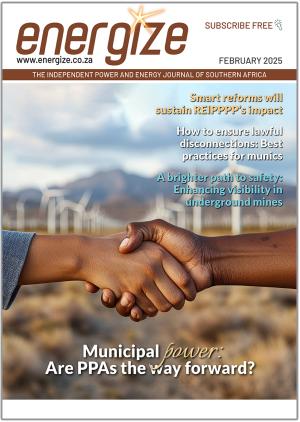The Energy Council of South Africa has launched Energise Mzansi – a national campaign focused on providing accessible information to the public about the country’s energy transition.
The initiative, which includes a dedicated website and coordinated communication efforts, seeks to provide stakeholders – including civilians, businesses and government – with accessible information, data and tools, which the council hopes will enable inclusive, informed dialogue on South Africa’s energy future.
“Energy literacy is more than just understanding the basics; it’s the foundation for informed decision-making, constructive collaboration and ultimately driving investment and economic growth through positive public sentiment,” says James Mackay, Chief Executive Officer of the Energy Council of South Africa. “Through this campaign, we aim to connect South Africans with the factual information they need to make sense of the challenges and take advantage of the opportunities presented by the energy transition.”
The campaign leverages traditional and digital media platforms with focus on six key technical areas:
- Integrated energy systems: Moving beyond a fragmented supply mix approach to a comprehensive energy planning strategy that balances supply, demand response and infrastructure development.
- Emissions obligations: Addressing South Africa’s high carbon footprint and preparing for international regulations such as the carbon border tax from 2026.
- Coal dependence: Examining coal’s continued role in South Africa’s energy mix and exploring strategies for cleaner, more efficient use without compromising energy security.
- Gas as a transition fuel: Investigating the role of gas in stabilising the energy system as renewable energy capacity expands and coal plants are phased out.
- Scaling renewables and storage: Evaluating the adoption of solar, wind and battery storage and overcoming barriers to widespread deployment.
- Energy market reform: Understanding the benefits of a competitive wholesale electricity market in driving investment, efficiency and lower prices.
The Energy Council of South Africa estimates that modernising the country’s energy system will require R2 trillion in investment by 2035 for new technologies and infrastructure upgrades.
“Government policy and commitment is clear. The two key drivers of our energy reform agenda are now anchored in law: the Electricity Regulation Amendment Act and the Climate Change Act.
“It is critical that informed responses lead the transition, ensuring collaboration across all stakeholders to create sustainable, long-term solutions for South Africa’s energy future,” Mackay says.















